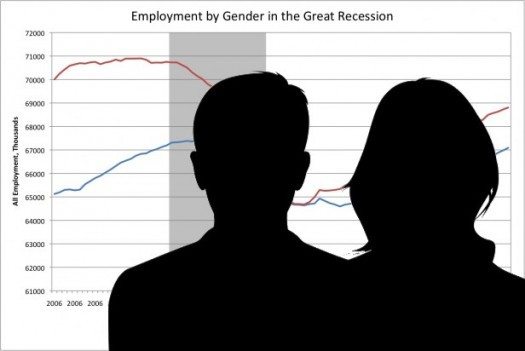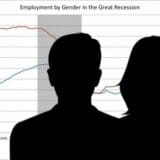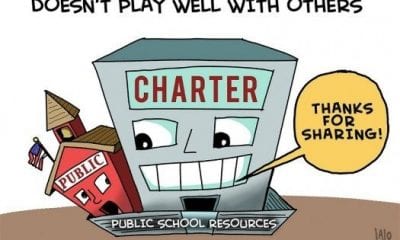

 According to accounts in the business press, there is a campaign among Washington insiders to get Larry Summers appointed as Ben Bernanke’s replacement as Federal Reserve Board chair. This could end up being the scariest horror movie of the summer.
According to accounts in the business press, there is a campaign among Washington insiders to get Larry Summers appointed as Ben Bernanke’s replacement as Federal Reserve Board chair. This could end up being the scariest horror movie of the summer.
It is bizarre that Summers would be seriously considered as the next Fed chair if for no other reason that there is an obvious replacement for Bernanke already sitting at the Fed. Janet Yellen, the vice-chair, has in the past served as the president of the Federal Reserve Bank of San Francisco, a member of the Board of Governors in the 1990s and head of President Clinton’s Council of Economic Advisers. She also has an impressive academic background, having been a professor at both Berkeley and Harvard.
No woman has ever served as chair of the Fed and Yellen would be an obvious choice to break the barrier.
» Read more about: Larry Summers: ‘Scariest Horror Movie of the Summer’? »


How are men doing in our anemic economic recovery? David Brooks, after discussing his favorite Western movie, argues in his latest column, Men on the Threshold, that men are “unable to cross the threshold into the new economy.” Though he’d probably argue that he’s talking about generational changes, he focuses on a few data points from the current recession, including that “all the private sector jobs lost by women during the Great Recession have been recaptured, but men still have a long way to go.”
Is he right? And what are some facts we can put on the current recovery when it comes to men versus women?
Total Employment
Men had a harder crash during the recession, but a much better recovery, when compared with women.
Indeed, during the first two years of the recovery expert analysis was focused on a situation that was completely reversed from Brooks’


 This week the Partnership for Working Families released Transforming Trash in Urban America, a report that underscores the urgent need to reform the way America’s largest cities deal with their trash.
This week the Partnership for Working Families released Transforming Trash in Urban America, a report that underscores the urgent need to reform the way America’s largest cities deal with their trash.
The report reviewed the waste management infrastructure of the top 37 metropolitan areas in the United States and found that environmentally unsound waste disposal processes create strain on local budgets, degrade a city’s quality of life and seriously accelerate climate change. Nearly half of the cities involved have recycling rates in the teens or lower— significantly below the national average of 34 percent.
Transforming Trash presents San Francisco, Seattle and San Jose as models for reform. These cities have created sustainable recycling infrastructure that has notably decreased the amount of trash sent to landfills, while creating good jobs and stimulating local economies.
According to the report,
» Read more about: Transforming Trash Into Good Jobs and a Clean Environment »


 Two recent U.S. Supreme Court decisions involving especially high profile cases have garnered all the legal headlines. The Court’s watershed decision rejecting Proposition 8 and restoring the legality of same-sex marriage in California gave new rights to a significant portion of American citizens – and gave blue states something to shout about.
Two recent U.S. Supreme Court decisions involving especially high profile cases have garnered all the legal headlines. The Court’s watershed decision rejecting Proposition 8 and restoring the legality of same-sex marriage in California gave new rights to a significant portion of American citizens – and gave blue states something to shout about.
Days before, red states held their own party after a court majority ruled that the 1965 Voting Rights Act was unconstitutional because it relied on data from the 1970s that was supposedly outdated. Immediately, officials in North Carolina, South Carolina, Texas, Mississippi and Alabama – all states covered by the law – got to work adopting restrictions limiting the vote of the old, the poor and people of color.
Just before these two momentous decisions, however, when no one was paying attention, the high court gave the country to the corporations — again. The Supremes handed down a decision that curtailed the avenues that employees have used to redress instances of religious or racial discrimination.


— for the family of Trayvon Martin
This poem wants to write itself backwards.
Wishes it were born memory instead, skipping
time like a record needle stuck on the line
of your last second. You sit up. Brush not blood,
but dirt from your chest. You sit up. You’re in bed.
Bad dream. Back to sleep. You sit up. Rise and shine.
Good morning. This is the poem of a people united
in the uniform of your last day. Pockets full
of candy, hooded sweatshirt, sweet tea. This poem
wants to stand its ground, silence force
with simple words, pray you alive, anyone’s
son — tall boy, eye-smile, walk on home.
——————————————————–——————————————————–
Tara Skurtu is a Teaching Fellow at Boston University, a Robert Pinsky Global Fellow and recipient of an Academy of American Poets Prize.


For more than 30 years each, Cheryl Smith-Vincent and Cheryl Ortega have shared a passion for teaching public school in Southern California. Smith-Vincent teaches third grade at Miles Avenue Elementary School in Huntington Park; before retiring, Ortega taught kindergarten at Logan Street Elementary School in Echo Park. Both women have been jolted by experiences with a little-known statewide policy that requires traditional public schools to share their facilities with charter schools. Ortega says she has seen charter-school children warned against greeting non-charter students who attend the same campus. Smith-Vincent reports that she and her students were pushed out of their classroom prior to a round of important student tests – just to accommodate a charter school that needed the space.
“It was extremely disruptive,” Smith-Vincent says of the incident.
The practice of housing a traditional public school and a charter school on the same campus is known as “co-location.” Charters are publicly funded yet independently operated,
» Read more about: Why Charter Schools Are Tearing Public Campuses Apart »


 The New York Times recently reported on how small business owners in certain cities are dealing with paid sick days laws. The takeaway? These new requirements have caused very little pain. The article highlights Bill Stone, the owner of Café Atlas in San Francisco’s Mission District, who was initially leery of paid sick days for his employees back in 2007 when San Francisco became the first city in the nation to implement a paid sick leave law. In 2007 Bill felt that the new paid sick law would only make it more expensive to run his business.
The New York Times recently reported on how small business owners in certain cities are dealing with paid sick days laws. The takeaway? These new requirements have caused very little pain. The article highlights Bill Stone, the owner of Café Atlas in San Francisco’s Mission District, who was initially leery of paid sick days for his employees back in 2007 when San Francisco became the first city in the nation to implement a paid sick leave law. In 2007 Bill felt that the new paid sick law would only make it more expensive to run his business.
But Stone recognizes that his fears about paid sick days were unfounded. Robb Mandelbaum of the Times writes:
Six years later, Mr. Stone admits to having been a little alarmist about paid sick leave. “As a small restaurant business, it’s really hard to make money,
» Read more about: Paid Sick Days: Good Sense and Good Karma »


The so-called Global Alliance for Bangladesh Worker Safety, announced July 10 by Walmart, Gap and the Bipartisan Policy Center, was developed without consultation with workers or their representatives and is yet another “voluntary” scheme with no meaningful enforcement mechanisms. Companies that sign onto the alliance but fail to meet a commitment face no adverse consequences beyond expulsion from the scheme. Instead, workers will continue to pay.
In stark contrast, more than 75 corporations from 15 countries, including the United States, have signed the binding Accord on Fire and Building Safety negotiated with Bangladeshi and international unions. The Accord has rules to make real improvements in the safety of garment workers. Workers, unions and worker rights organizations negotiated this agreement with employers and integrated worker safety efforts by governments and the International Labor Organization (ILO). The AFL-CIO and Change to Win, along with global unions IndustriAll and UNI and numerous organizations representing Bangladeshi workers,
» Read more about: Walmart’s Worthless “Alliance” for Bangladesh Factories »


Is the full-time American job going the way of the dodo? The signs aren’t exactly heartening.
Consider the jobs report released Friday [July 5]. The United States added 195,000 new jobs in June, it said, including 322,000 new part-time jobs — a number that comprises only part-timers who want full-time work but can’t find it. Assuming my grade-school arithmetic skills haven’t completely eroded, that suggests that the number of full-time jobs actually declined.
Critics of Obamacare have a ready explanation: The 30-hour-a-week cutoff of the now-postponed employer mandate — which requires many employers to either provide health-care coverage for employees who work at least that much or to pay a penalty — was compelling employers to reduce workers’ hours. That mandate, the Wall Street Journal editorialized, gave businesses “an incentive to hire more part-time workers.”
If the employer mandate really were the problem,
» Read more about: The Full-Time Worker: A Vanishing American »